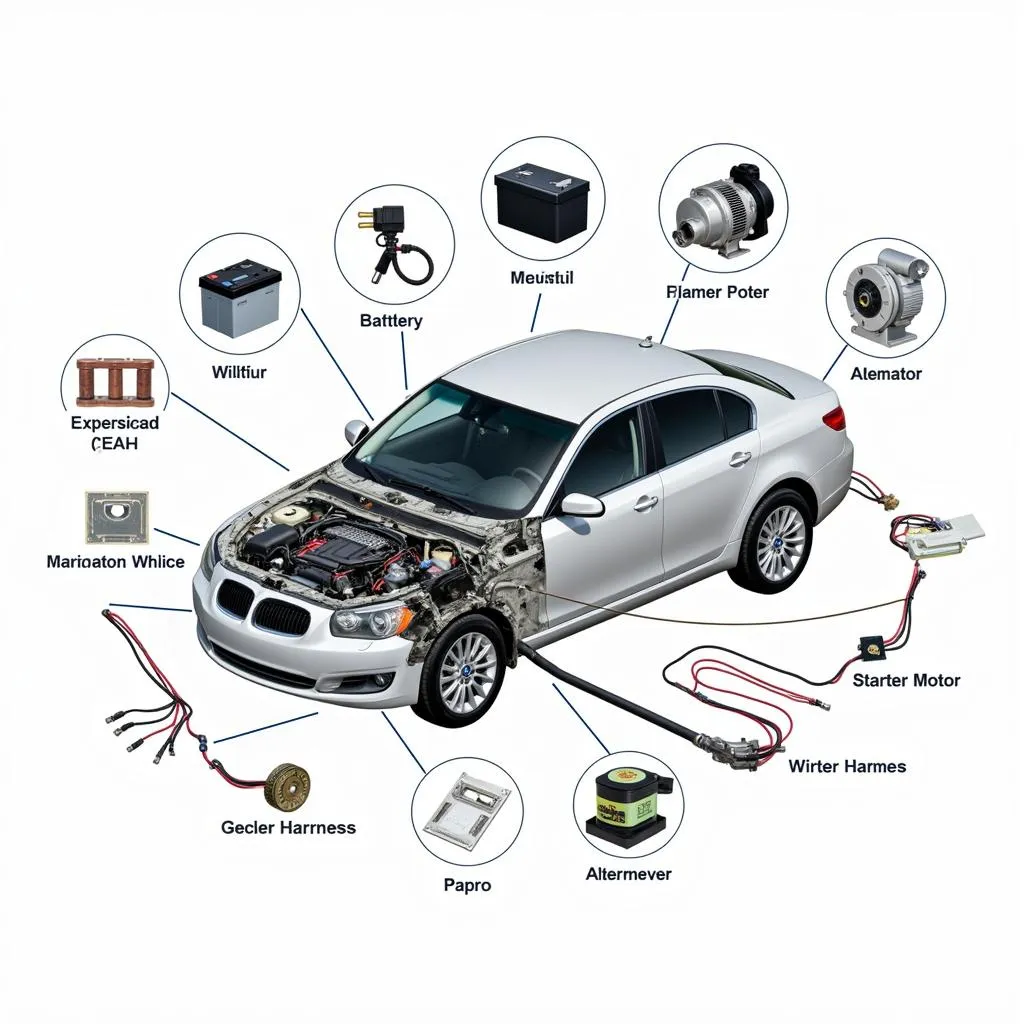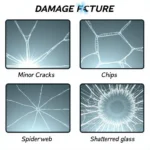Modern vehicles rely heavily on complex electrical systems for everything from starting the engine to powering entertainment systems. When these systems malfunction, it can lead to frustrating and potentially dangerous situations. Understanding the basics of car electrical repairs can save you time, money, and headaches.
Common Car Electrical Problems
Car electrical issues can manifest in numerous ways, often leaving you stranded or unsure of the cause. Here are some common problems:
- Battery Issues: A dead battery is a frequent culprit, often due to age, extreme temperatures, or a faulty alternator.
- Starting Problems: If your car struggles to start or makes clicking sounds, it could indicate a problem with the starter motor, battery, or ignition system.
- Lighting Malfunctions: Malfunctioning headlights, taillights, or interior lights can point to blown fuses, faulty wiring, or bulb issues.
- Electrical System Short Circuits: A short circuit can disrupt the flow of electricity, leading to malfunctioning components or even electrical fires.
- Sensor Failures: Modern cars rely on numerous sensors for various functions. A faulty sensor can trigger warning lights on your dashboard and affect engine performance.
Diagnosing Car Electrical Problems
Accurately diagnosing car electrical issues is crucial for effective repairs. While some problems have obvious signs, others require specialized tools and knowledge.
Here are some common diagnostic methods:
- Visual Inspection: Start by visually inspecting the battery, wiring, and fuses for any visible damage, corrosion, or loose connections.
- Battery Testing: Use a multimeter to test the battery’s voltage and ensure it’s holding a charge. A weak or dead battery can cause various electrical problems.
- Alternator Testing: The alternator charges the battery while the engine is running. Test its output voltage to ensure it’s functioning correctly.
- Starter Motor Testing: If the starter motor is suspected, it can be tested for proper operation using specialized equipment.
- Diagnostic Scanning: Modern vehicles have onboard diagnostic systems (OBD-II) that store error codes related to electrical problems. Using a scan tool, mechanics can read these codes to pinpoint the source of the issue.
When to Seek Professional Car Electrical Repairs
While some minor electrical repairs can be handled by car owners with basic knowledge, more complex issues are best left to qualified mechanics. Attempting to fix intricate electrical systems without proper expertise can lead to further damage or even pose safety risks.
Consider seeking professional car electrical repairs in the following situations:
- Complex Electrical Issues: Problems involving the engine control unit (ECU), wiring harnesses, or other intricate components require specialized knowledge and tools.
- Safety Concerns: Electrical issues can sometimes pose safety risks, such as fire hazards. It’s crucial to prioritize safety and seek professional help.
- Lack of Expertise: If you lack experience working with car electrical systems, attempting repairs yourself can lead to further damage or incorrect diagnoses.
Conclusion
Car electrical repairs are an essential aspect of maintaining a safe and reliable vehicle. By understanding the basics of car electrical systems, recognizing common problems, and knowing when to seek professional help, you can keep your car running smoothly and avoid potential headaches on the road.



